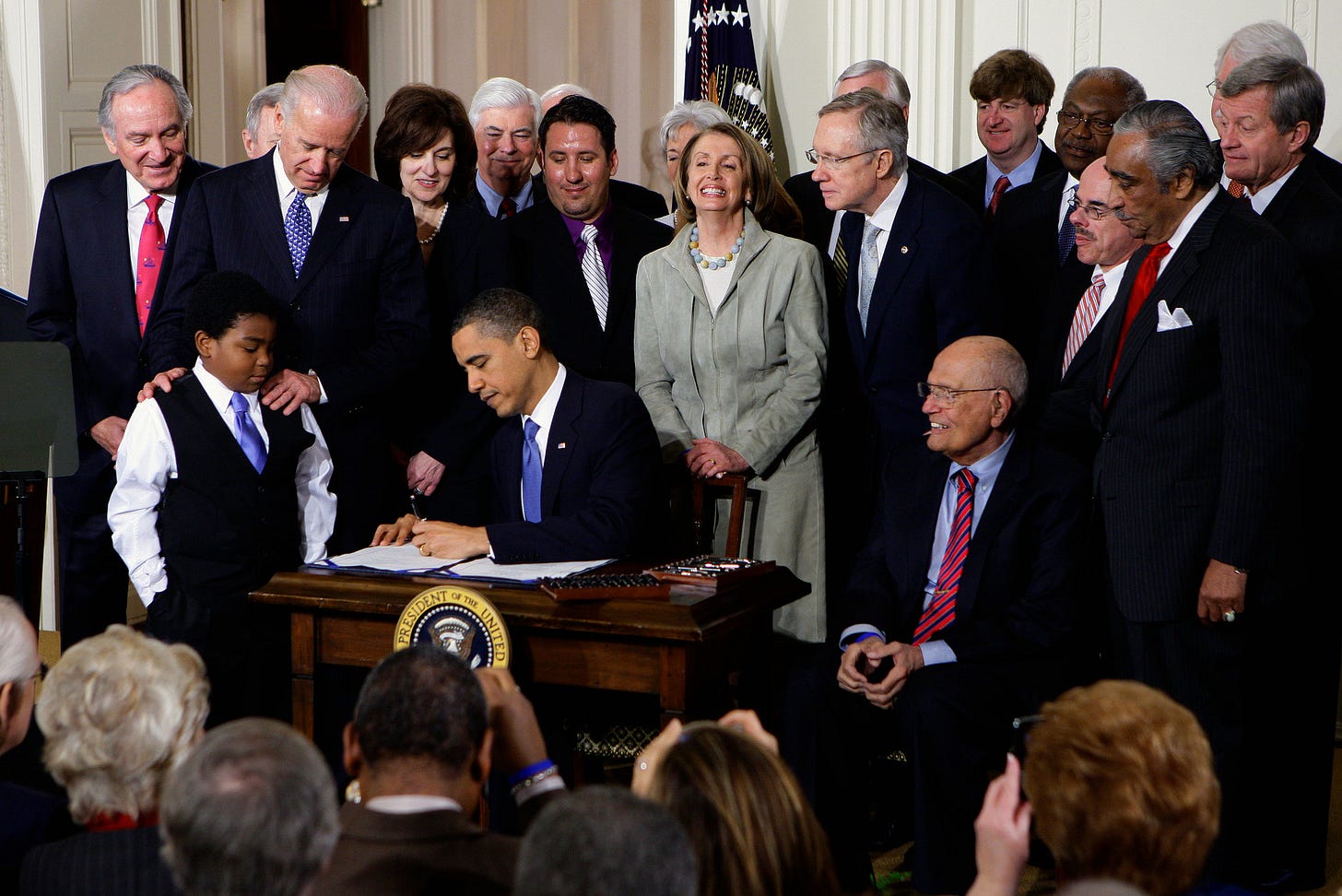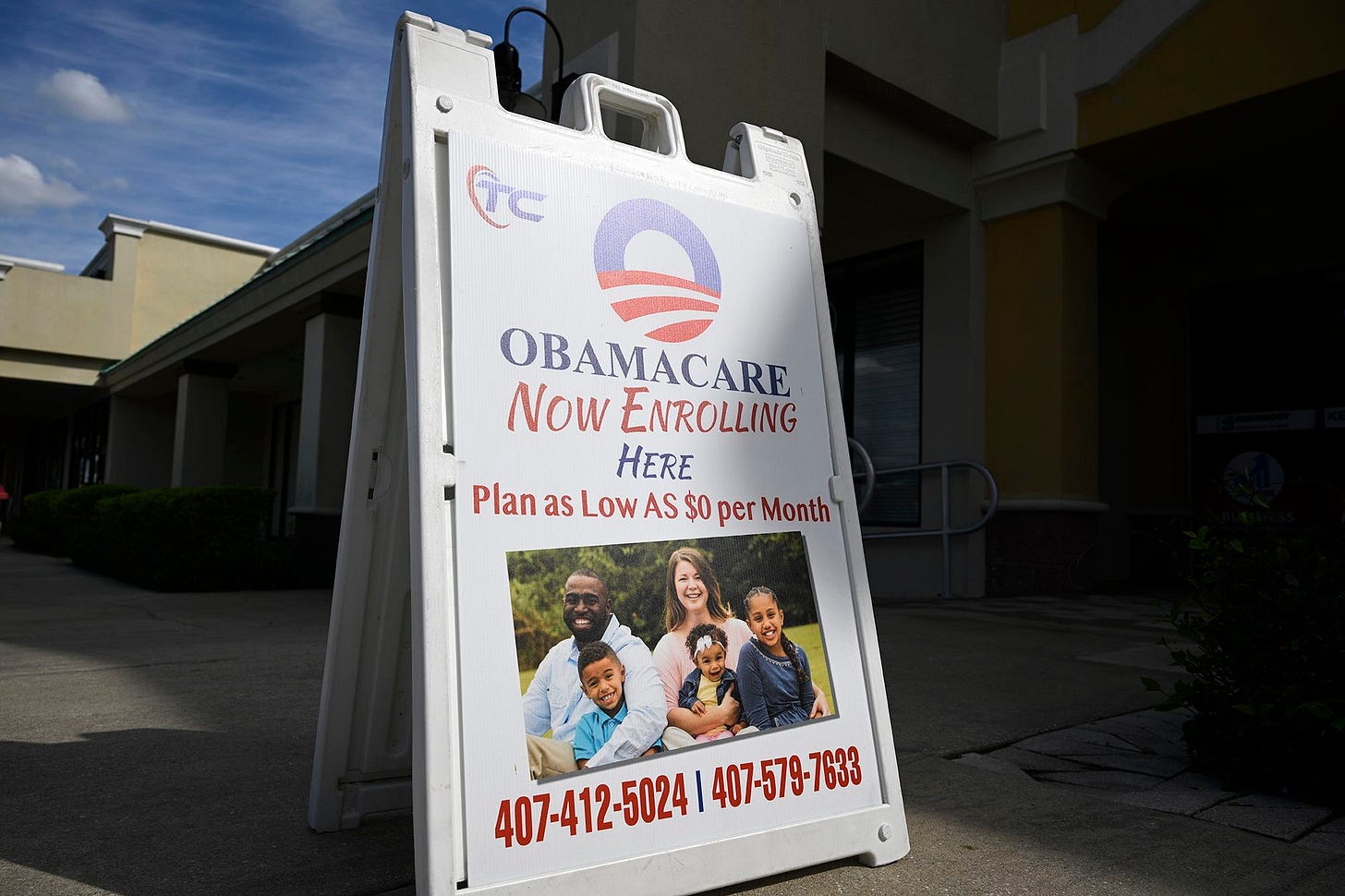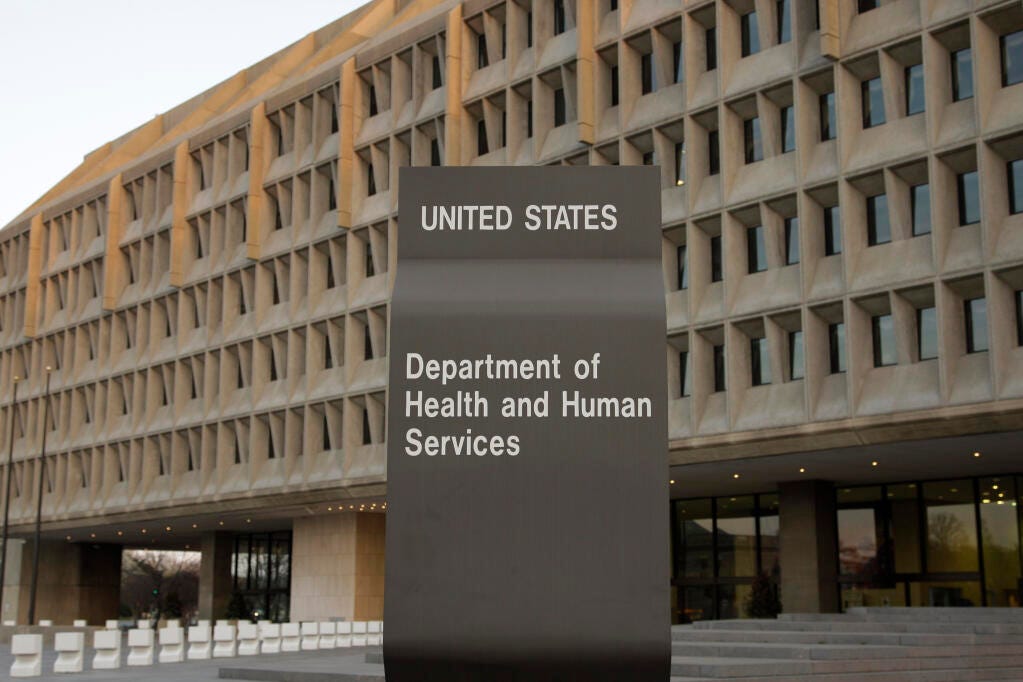SCOTUS Takes Up Obamacare
Yes: again.
The Supreme Court has agreed to hear a new case about a portion of the Affordable Care Act, one that requires insurance plans to provide coverage for some types of preventative care, like cancer screenings and medication to prevent HIV.
This lawsuit contains both a procedural objection and a religious freedom claim, but it’s not the first lawsuit to try to overturn the law. In fact, there have been more than 2,000 legal challenges to the ACA, but only a few have made it to the Supreme Court.
The Affordable Care Act (ACA) was signed into law in 2010 under Barack Obama’s administration. It was meant to make health insurance more accessible to all Americans, and requires most employers to offer some sort of health insurance to their full-time employees. It provided financial aid to some families to help pay premiums, and it expanded access to Medicaid for low-income individuals.
The first legal challenge focused on an individual mandate that required people to maintain a minimum level of health insurance, as well as the Medicaid expansion program, which originally was mandatory for states. In 2012, the Supreme Court ruled that the individual mandate was constitutional, but that the Medicaid expansion program was unconstitutional, because the federal government was threatening to withhold Medicaid funds from states that didn’t expand. The Court’s 5-4 ruling essentially made the Medicaid expansion optional for states, and kept the rest of the ACA in place.
The next challenge before the Supreme Court was whether privately held for-profit companies could be required to offer insurance coverage that included contraceptives. The ACA already allowed certain religious employers, like a house of worship, to be exempt from providing contraception. It had an accommodations process for other nonprofits that protested the contraception mandate on the basis of religion. The accommodations process meant these nonprofits facilitated access to contraceptive coverage through a third-party insurer. It gave the Obama administration a workaround — the employee’s needs were still covered, but the employer didn’t have to be the one doing it.
In 2014, the Court ruled that for-profit companies were not required to provide contraceptive coverage if they had religious objections. The Court instead made the accommodation process available to the for-profit companies to use as well.
Then, in 2017, Donald Trump’s administration broadened the religious exemption to include almost any employer and university. The American Civil Liberties Union (ACLU) sued, but the Supreme Court later upheld Trump’s ability to expand religious exemptions.
Republicans in Congress tried unsuccessfully to repeal and replace the ACA. They were defeated when Republican Senator John McCain paused his brain cancer treatment in order to get to Capitol Hill and vote no on the repeal effort. His presence was a surprise, as he was not expected to make it back to DC. His “no” vote, along with those of Republican Senators Lisa Murkowski and Susan Collins, killed the effort with a final 51-49 tally in the Senate.
This most recent challenge comes from multiple Texas residents and two small Christian-affiliated businesses. They have two complaints, both of which stem from a task force that was appointed as part of the ACA to recommend what should be covered by insurance. They say that:
1. The Task Force was unconstitutionally appointed.
The U.S. Preventive Services Task Force is an independent, volunteer panel of experts who recommends which preventative health services should be covered at no cost to patients. The plaintiffs in this new case argue that this task force is unconstitutional because its members were not chosen by the President and confirmed by the Senate, which they say violates the Appointments Clause of the Constitution. Therefore, the plaintiffs say any rulings the task force has made should be discarded.
Members of the Preventative Services Task Force were appointed by the heads of agencies inside the Department of Health and Human Services which the plaintiffs say make them Officers of the United States, subject to the Appointments Clause. The plaintiffs further argue that there is nothing in the ACA that allows the Secretary of HHS or the heads of the HHS agencies to reject recommendations made by the task force.
They want the court to declare all mandates from this task force, as well as other task forces such as the Advisory Committee on Immunization Practices (ACIP) and Health Resources and Services Administration (HRSA), to be ruled unconstitutional. Together, these three panels recommend what vaccines, contraceptives, mental health care, and other services must be covered by insurance.
2. The recommendations from the task force violate the plaintiffs’ religious beliefs.
The second complaint is that the task force currently recommends insurance companies cover PrEP, an HIV prevention drug that is 99% effective, which the plaintiffs say violates their religious beliefs. The lawsuit also includes a challenge to the mandate that they must provide some type of contraceptive coverage. They want “the option to purchase health insurance that excludes or limits coverage of PrEP drugs, contraception, the HPV vaccine, and the screenings and behavioral counseling for STDs and drug use”.
The plaintiffs claim having to provide insurance for PrEP “violates their religious beliefs by making them complicit in facilitating homosexual behavior, drug use, and sexual activity outside of marriage between one man and one woman.”
What does the government say?
The Biden administration argues that the task force members were legally appointed by the Secretary of Health and Human Services. They say that a variety of statutes and regulations allow for independent groups to make these kinds of recommendations, and that these regulations don’t require someone to be an official officer of the United States.
Solicitor General Elizabeth Prelogar, part of the team arguing on behalf of the government, warned in court briefs that overturning the recommendations of the task force would “upend healthcare coverage for millions of Americans,” many of whom rely on the preventative care and would no longer have access to it.
How the case got to the Supreme Court
In 2022, US District Judge Reed O’Connor agreed with the plaintiffs, saying the volunteer task force was unconstitutionally appointed and any recommendation it had made since 2010 were invalid. The government appealed, and this summer, the US Court of Appeals for the Fifth Circuit ruled that the task force was unconstitutional, but it did not override all the task force’s mandates. Instead, it just overruled those mandates that applied to the plaintiffs.
That means that right now, the Affordable Care Act’s insurance requirements remain in place for most of the US, but cannot be enforced against the plaintiffs in this case.
The Biden administration asked the Supreme Court to take up the case, saying the appeals court’s “legal rationale would inflict immense practical harms.”
What comes next?
The Supreme Court will hear the case in March or April and it will be decided by the end of June. However, Donald Trump’s presidential win could affect the case, because his Justice Department lawyers might decide not to defend the Biden administration’s position. Trump has criticized the coverage requirements under the Affordable Care Act, so it's possible his administration’s lawyers will not defend the case. In that situation, the Supreme Court could appoint another lawyer to do so.
If the Supreme Court does overturn the insurance requirements, not all preventative care will be affected. According to KFF, a nonprofit formerly known as The Kaiser Family Foundation, some of the recommendations at risk are “cancer screenings, preventive medications for chronic conditions such as cardiovascular disease, counseling on health behaviors related to nutrition and weight management, alcohol and drug use, tobacco cessation services, screening for depression, and prenatal services.”
KFF writes that if the federal requirements for contraceptive coverage is overturned, it would be up to individual states to decide mandates for coverage. Right now, 14 states and Washington, DC have legal protections for accessing contraception. However, federal law prevents states from regulating employer-funded health plans, which currently cover about 65% of workers.
If the Supreme Court overturns the appeals court’s decision and lets the ACA remain as is, we will still likely see more challenges to the act in the following years. Trump has called the Affordable Care Act “lousy” and expressed interest during his presidential campaign in changing the law. Many Republican Congressional members have said the law is too expensive and that the government is overreaching its authority.
Speaker of the House Mike Johnson said in October that there would be “massive” health care changes once Trump was in office. He said, “Health care reform’s going to be a big part of the agenda … The ACA is so deeply ingrained, we need massive reform to make this work, and we got a lot of ideas on how to do that.”
Also in October, GOP Senator Tom Cotton said, “We’ll have an opportunity next year, when it comes time to extend the Trump tax cuts, to adopt new policies that again will make health care more affordable and more personalized. Because a lot of health care in this country does go through our tax code. So I think that’ll be a very good opportunity next year.”
So how could they change it?
Republicans will likely try to shrink Medicaid, the nearly $900 billion a year health program that serves mostly low-income individuals and families.
GOP Rep. Chip Roy, a member of the Budget Committee, said Congress needs to cut federal spending on the program. He said, "You need wholesale reform on the health care front, which can include undoing a lot of the damage being done by the ACA and Obamacare. Frankly, we could end up providing better service if we do it the right way."
There are a few ways they could make these cuts:
Require that Medicaid enrollees are working or seeking jobs (currently there is no requirement that you are actively looking for work or employed).
Right now, about 10 states let people stay enrolled in the program without needing to reapply year to year. Trump’s administration could repeal states’ ability to grant continuous eligibility, requiring people to reapply each year
Change the way states get money for Medicaid to make it so states are paid based on their population, instead of being ensuring benefits to any eligible applicant without limit
Another option is for Congress to cut back funding on the Affordable Care Act overall, not just Medicaid. They could do that by reducing or eliminating the subsidies that help people pay for premiums. These subsidies were enacted after Biden was elected, and are meant to sunset at the end of 2025.
One thing is clear: expect for the ACA to be in the news throughout 2025.











Only in America, where the people voted for a bunch of billionaires who will protect their own wealth and ways of increasing it at all costs, even taking healthcare away from the most vulnerable. Our only hope is that Republicans fight so much among themselves over the levels of cruelty to inflict that they end up doing nothing. How many calls to a Senator from concerned constituents does it take to equal one call from Elon Musk threatening to fund that Senator’s primary challenger?
I am a healthcare provider in Alabama and also the sister of an adult with cerebral palsy who is fully dependent on the already meager funds she receives from unexpanded Medicaid. I am horrified and am in tears this morning; for my patients, my family, and America.